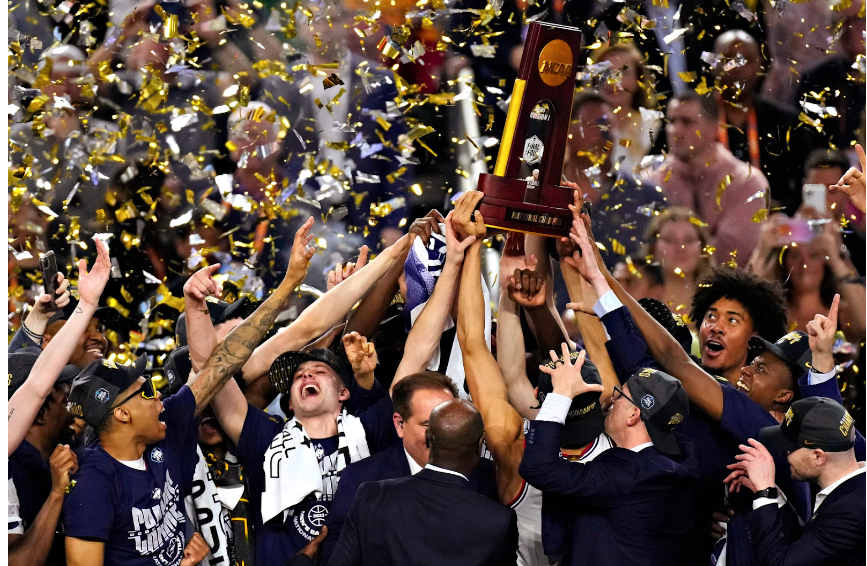New Year, New Us
Despite bold resolutions, many face constant temptation. Photo via the Huffington Post.
January 7, 2018
2017 has drawn to a close and a new three hundred sixty-five days has begun its cycle. This may just be another year for some, but for many, it is a fresh start.
A New Year’s Resolution, whether it is to get off the couch and live a healthier lifestyle, lay off the junk food, spend less money, or be a better version of yourself, is a way to set goals for the upcoming year. This objective may be maintained for the first few weeks, but then eventually become forgotten, with the usual routine being reinstated once again.
Freshman Nathan Lavoie explains, “In my opinion, New Year’s resolutions don’t make any sense because 5 minutes later they break them.”
These results leave the public wondering: Why are these resolutions not being fulfilled? Do resolutions even work?
According to United States News, approximately 80% of New Year’s resolutions fail by the second week of February. The Huffington Post says that only 8% of people stick to their New Year’s resolution.
A student from Hingham High School who would like to remain anonymous shared, “Mine was to eat healthier, and I have been eating four cookies a day, so it is not really working.”
Goals relating to nutrition may be too ambitious if the process is not gradual. In other words, a change that big does not happen overnight.
According to Dr. Roberta Anding at Baylor College of Medicine, setting smaller more realistic goals may result in a more successful outcome. So, instead of giving up junk food altogether, adjust the portion sizes and limit the amount of consumption. This smaller, more attainable goal will institute better habits and will eventually result in better concrete nutritional values.
This way of making goals can work with anything, not just ones relating to eating habits. For example, instead of resolving to exercise more, Psychology Today says to do something easy and every day that can fit into one’s schedule. A more efficient and specific goal would be to walk or run one-third more than usual. That goal can be obtained and will lead to a higher success rate.
“I think New Year’s Resolutions are a good thing,” Freshman Evelyn Steiner states. “But I feel like people can take them too far and they get disappointed with themselves when they set an unachievable goal.”
Make sure that the goal is something that can be easily executed and integrated into a current schedule, so as to make it a routine.
However, setting goals can happen at any time, not just when the ball drops at midnight.
“You don’t need a new year to start making changes in your life,” Sophomore Marie O’driscoll explained. Instead of beginning to pursue a goal that may end in failure, build upon habits and existing goals.
New Year’s Resolutions remain a way to create new and positive changes in one’s lifestyle. Although they are not always achievable, these goals can often be a good start to a positive change in the New Year.































